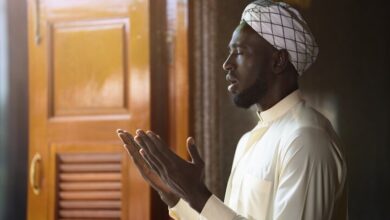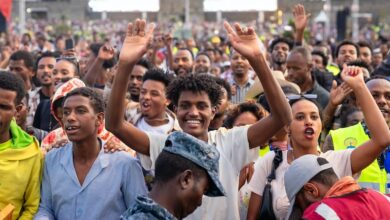Egypt’s Christians Hope for Peace Amid Quiet
By Ava Thomas
CAIRO, Egypt (BP) — When Egypt’s government abruptly stepped down Feb. 24, the action made only small ripples in a nation now accustomed to major political upheaval. Army chief Field Marshal Abdel Fattah al-Sisi, who is now expected to run for president in the coming election, quietly resigned from power, and new prime minister Ibrahim Mehlib stepped in, reinstating Sisi as defense minister.
The quiet change mirrored Christians’ cautious hope for the future — that they might trade the revolutionary change promised by the Arab Spring for the peaceful lives they lived before, said Courtney Dobson,* a Baptist worker who serves in the area.
“As the Arab Spring revolution started in 2011, Christians were hopeful that a new day of freedom was dawning,” Dobson said.
At that time, Egyptians spilled out of mosques and churches alike to rally around issues transcending religious barriers — jobs and food. Christians were “guardedly optimistic” that the change would bring freer lives and pave the way to share the Gospel more openly, one Christian worker said.
But after the nearly 30-year regime of President Hosni Mubarak fell, things took a different turn.
A narrow majority elected Muslim Brotherhood candidate Mohamed Morsi president in 2012, and he “began to gather to himself unrestricted power,” Michael H. Edens, professor of theology and Islamic studies at New Orleans Baptist Theological Seminary, wrote in a column for Baptist Press.
Morsi “hurriedly formed a constitutional revision committee devoid of non-Islamist input and drafted a pro-Islamic constitution.”
He also tightened his grip on things like freedom of expression, and by the end of June last year, many realized Morsi was destined to become another dictator, Edens said.
Protestors worked themselves back into a frenzy, and after tremendous bloodshed, Morsi was forced out July 3 by military force headed up by Sisi. The public cheered.
But Christians faced an escalating battle — open attacks on Christians and churches. The violence, touted as revenge on Christians for ousting a Muslim Brotherhood leader, saw more than 75 churches across the country attacked, looted, burned or destroyed by the end of the week that Morsi was removed from power.
The attacks continued into August, with Beni Mazar Baptist Church in Minya and other churches set on fire Aug. 14.
Without God, “it is still dark” in Egypt, said Mounir Malaty, pastor of another Baptist Church in Egypt and a graduate of New Orleans Baptist Theological Seminary.
“Pray for us as a church that we will be like salt in the community and try to wake people up to come to Christ,” Malaty said. “This is the time for our sister churches outside of Egypt to pray for us. This is our time. This is our chance.”
Pastors across the country asked for urgent prayer for peace, and slowly things have settled down. Dobson said the fragile calm is reminiscent of the old days for Christians. Many hope the quiet step-down of Sisi — which many say sets him up to run for president in the next election — is an indicator that peace and stability are on the horizon.
“Three years on , people seem to be resigned to resuming their old patterns of life and maybe even hopeful to return to a more predictable response from those who oppose them,” she said.
Dobson said she has seen an uptick in the number of Christians determined to share their faith regardless of the circumstances.
“Christians in the West can pray that believers here would be willing to take risks to share their faith,” she said.
“Pray that the Christian community here will be marked by love, especially when they face hostility. Pray that Egypt would become a place where people are free to choose their own beliefs without facing persecution for doing so.”
*Name changed. Ava Thomas is a writer/editor for the International Mission Board based in Europe.






